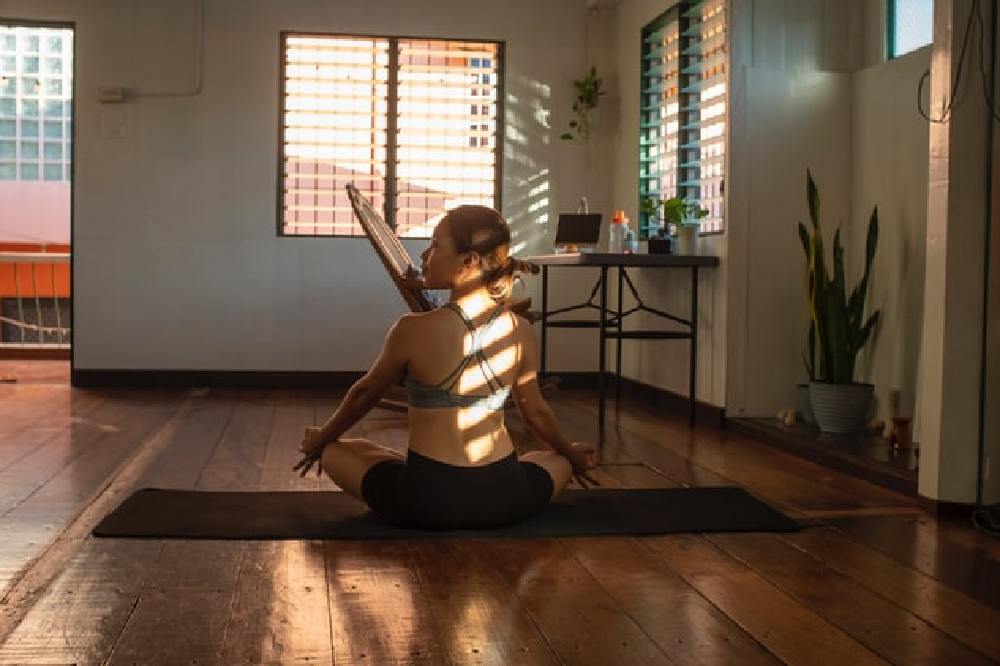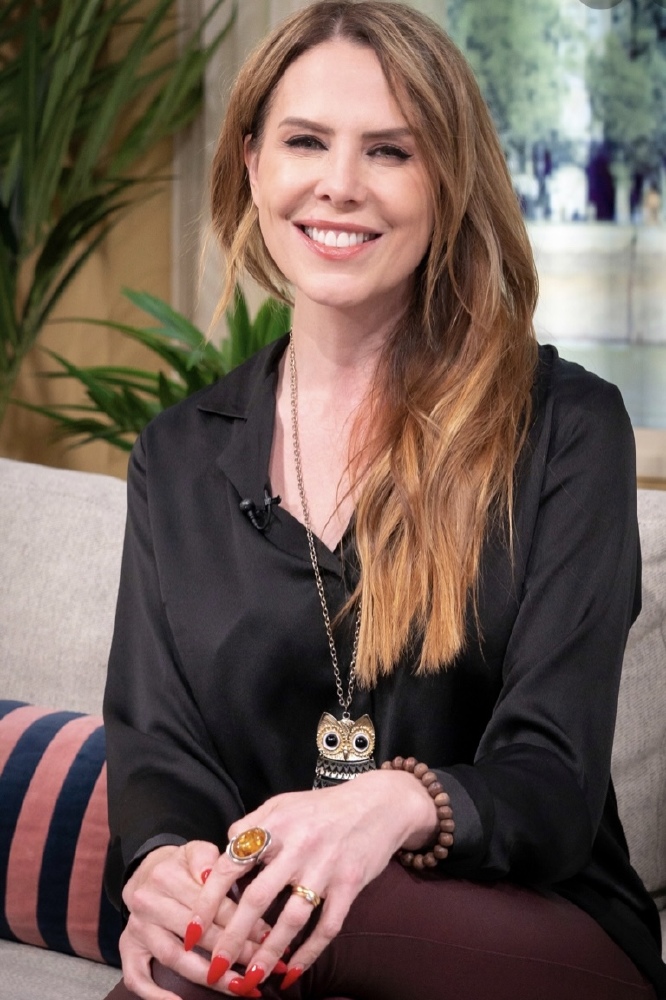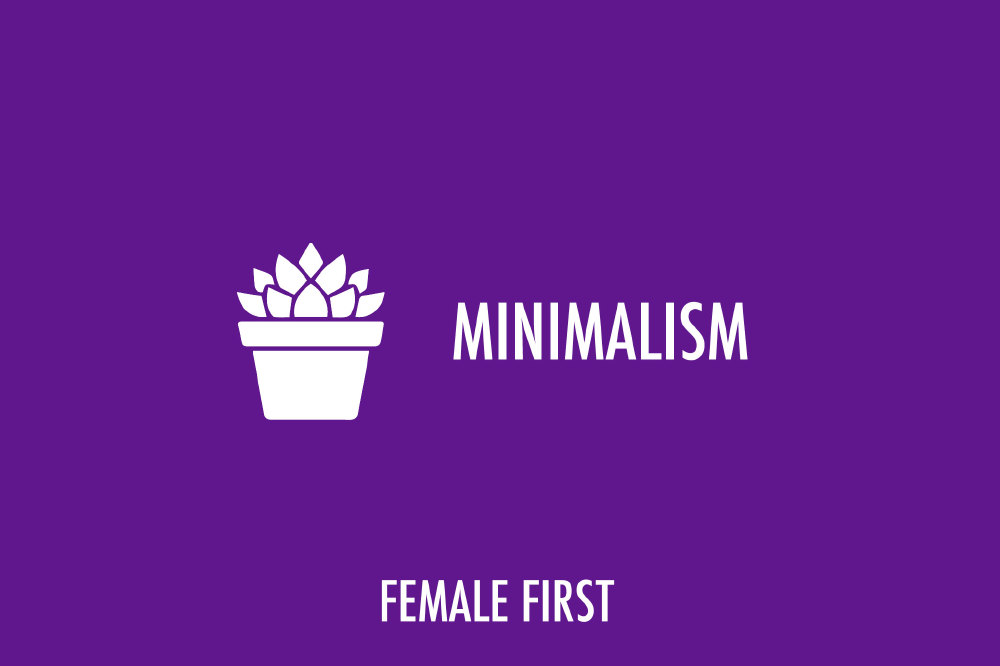According to Brabantia, the phrase 'a tidy house, a tidy mind' rings true for three quarters of the nation as Brits with mental health issues reveal that cleaning has a calming effect. With this in mind, we spoke to pschologist Emma Kenny to discuss how minimalism fits into the mix and whether it has a greater impact on low mood than simply being tidy.

Image courtesy of Unsplash
With the recent rise in minimalism, do you think that minimalists tend to be happier than non-minimalists given that they have less stuff to maintain?
Minimalism creates a sense of order which can help you feel more in control of your wider world, so minimalists are less likely to become bogged down by the burdens of excess baggage in their lives, both emotionally and physically meaning they are likely to score higher on the happiness index.
What are the benefits of keeping on top of your home in terms of your mental health?
I have been working with premium homeware brand Brabantia who have actually done a recent study revealing 76% of us say a clean home is important to their mental health and wellbeing. To keep your mental health in check it is essential to find pockets of space where you can feel at peace. When you live in a chaotic environment, this can translate to a type of mental chaos that leads to more negative thinking loops. When your house feels, and looks clean, and tidy it sends you a message that you are coping and reminds you that you are making positive decisions within your wider world.
Does decluttering have the same positive effects on people's mental health as simply being tidy?
Decluttering is something that you should do regularly as it helps cut out collateral belongings that do little aside from make our homes look untidy. When you only keep what you require you create a minimalist mindset that translates to other areas of your life. It will mean you don’t just have a lovely home, but that you cut down on spending, food waste, and on buying items that you really don’t need. Decluttering shows you how much you waste and helps you to fine tune, and eventually cease this behaviour
How can having too many things have a spiral effect on someone's mental health?
Having too many things tends to mean you are overspending, or using this behaviour to distract yourself from something that is missing in your life. Whilst you can do this for a period of time, in the end it catches up on you meaning that you will have to confront your emotional issues and deal with a house full of unwanted items at the same time which can feel utterly overwhelming. This is why keeping on top of your home has far reaching benefits.

How can an overwhelming home environment effect relationships between the people living there?
When you look around at the landscape of your life and see chaos, tardiness, or general disorganisation it can lead to elevated stress and anxiety levels. These feelings can become so problematic emotionally that they start affecting your closest relationships as you end up projecting your feelings onto your relationships, instead of taking control and getting your life in order. Whilst blaming someone else for the way we feel may help us manage in the short term, it damages good relationships and fails to make a positive difference to your life in the long-term.
What is the best way to declutter your home if you never have before?
When it comes to decluttering, you need to take each room individually and make sure you finish one, before starting another. Ensure you have the cleaning products that you need, clear a couple of hours from your diary and literally start in one corner of the room and declutter from this point. Being ruthless is important, if you haven’t worn, used or needed items in years send them to the charity shop, sell them, or throw them away. Never start decluttering several rooms at once as this will make you feel there is no clean spaces in your home, and lead to you feeling even more overwhelmed which will be counterproductive.
What impact do you think lockdown has had on people and their relationship with their things?
Lockdown has been difficult for many reasons and everyone will have coped and reacted differently. Many people now work from home and this means that you will have started to see home in a different way. You don’t switch off from work when you walk out of the office, because now home is the office. This blurring of boundaries means that keeping your house in order is even more important than ever. Many of us have realised that too much stuff is detrimental emotionally and professionally because organisation is key when working, and you can’t feel organised if you can’t find things because of all the clutter. Lockdown offered a pause for thought regarding how people are living their lives and understandably for many people this has led to them rethinking how they look after their homes.
Do you think there is any merit to the one in and one out rule?
Some people practice the one in, one out method, where you only buy a shirt for example when you send one to the charity shop. This works if you have fully decluttered your home in the first instance, but will simply maintain clutter if this hasn’t occurred. Asking yourself if you really need more than you have is often a better approach, as this involves minimalist thinking as opposed to retaining the status quo processing.
What is your opinion on organisational tools? Do they help or do they just mask the problem?
Even if you are not ready to declutter your home completely, using organisational tools can make a positive difference to your wider world and the way you feel about it. If you look at your home interior and it looks clean and tidy, it makes you feel more positive, so having storage furniture and organisational tools that look good, don’t change the flow of your furniture and allow you to deal with your clutter one piece at a time will certainly benefit you emotionally, environmentally and psychologically.
RELATED: Home and Garden: Seven ways minimalism is a safer way to live your life
Tagged in Minimalism


